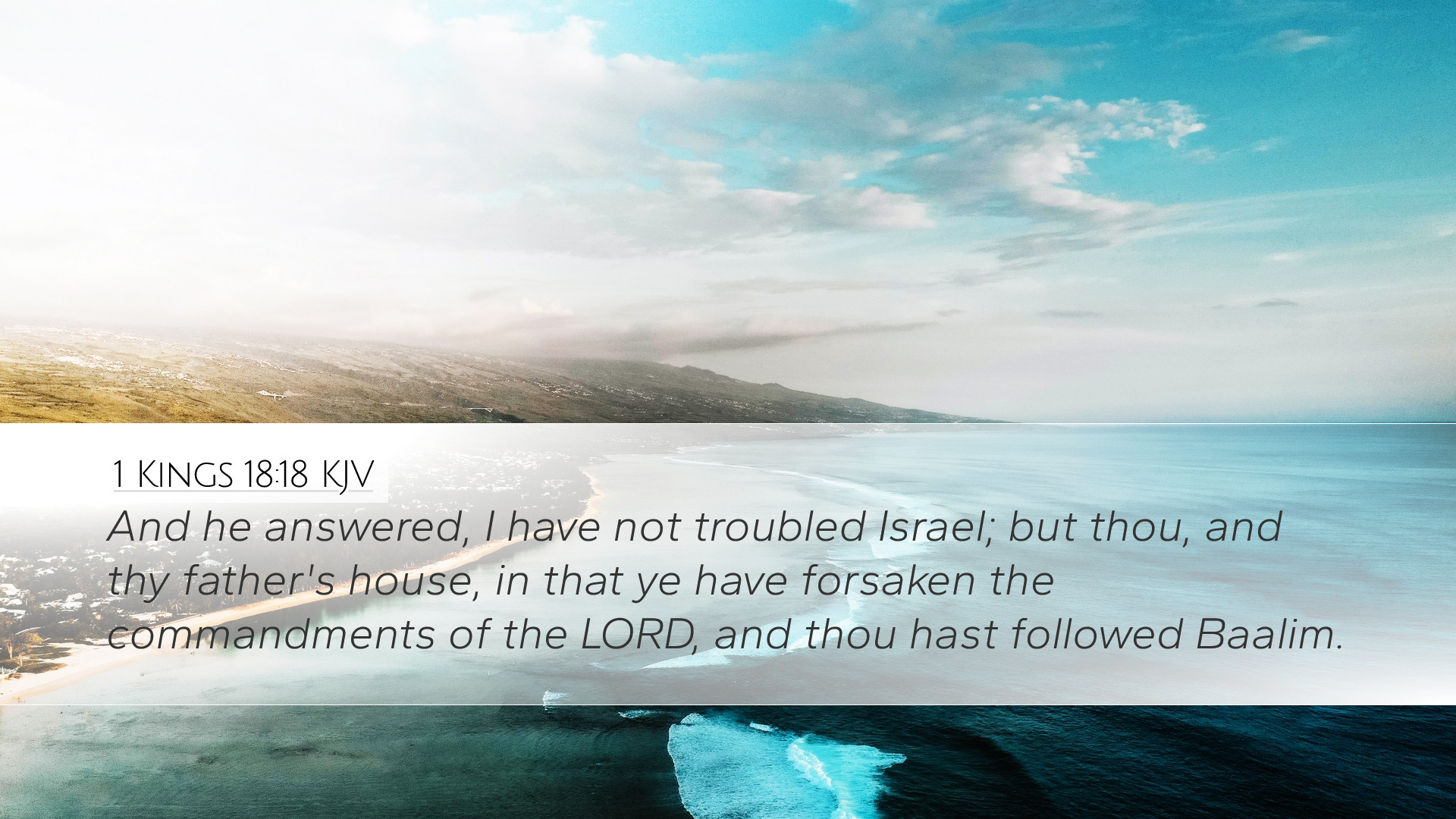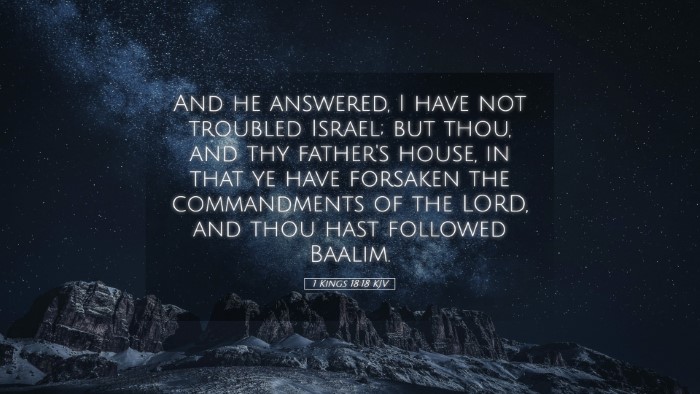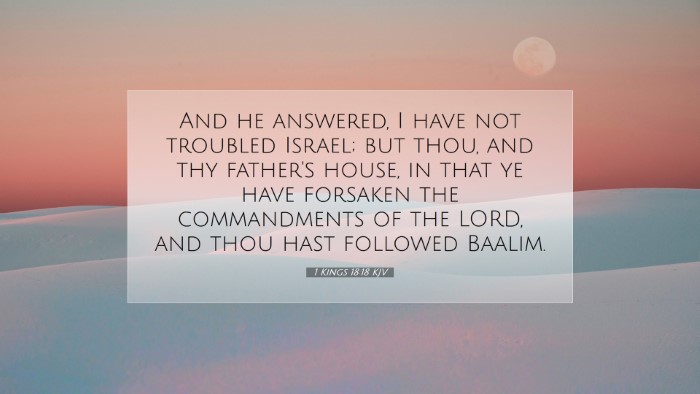Commentary on 1 Kings 18:18
Verse: "And Elijah answered and said, 'I have not troubled Israel, but you and your father’s house have, in that you have forsaken the commandments of the LORD and have followed the Baals.'" - 1 Kings 18:18 (NKJV)
Introduction
The narrative of Elijah is central in the historical books of the Old Testament, primarily located in 1 Kings. In 1 Kings 18:18, Elijah confronts King Ahab, signifying a pivotal moment in his prophetic ministry. This verse encapsulates the tension between faithful worship and idolatry, which serves as a critical theme throughout the Scriptures.
The context of this confrontation arises amidst a national crisis in Israel, exacerbated by Ahab's marital alliance with Jezebel and the subsequent promotion of Baal worship. The verse serves not only as a claim of innocence by Elijah but also a powerful indictment against the sinful actions of both Ahab and Israel.
Analysis of Key Themes
- The Nature of Prophetic Ministry:
Elijah serves as a model of true prophetic ministry, delivering God's message irrespective of popular opinion or political pressures. His bold claim demonstrates the role of a prophet not merely as a foreteller but as a truth-teller who challenges the status quo.
- Accountability and Leadership:
Ahab's actions are characterized by a shift away from Yahweh, showcasing the responsibility of leaders to uphold and avoid leading their people into sin. The stark declaration by Elijah serves as a reminder that leaders are accountable for their influence and the consequences of their choices.
- The Struggle Against Idolatry:
The verse illustrates the persistent struggle against idolatry, a central issue faced by the Israelites. Following Baal represents a turning away from the covenant and the blessings associated with faithfulness. Elijah’s indictment serves to awaken the consciousness of Israel regarding the gravity of their spiritual condition.
Commentary Insights
Matthew Henry's Commentary
Matthew Henry emphasizes that Elijah's confrontation with Ahab not only defends his innocence but also highlights the immense burden placed upon the nation due to the king’s idolatrous practices. Henry points out that it is Ahab and his household who have troubled Israel by leading them away from the true God. He elaborates that this passage reflects Elijah’s divine calling to bring Israel back to a right relationship with God.
Albert Barnes' Notes
Albert Barnes notes that Elijah’s retort to Ahab underscores the cause of Israel’s troubles. He posits that Ahab’s failure to obey God’s commandments led to national calamities. Barnes emphasizes that public sin can have far-reaching effects and suggests that the troubles of a nation often stem from its leaders’ disobedience.
Adam Clarke's Commentary
Adam Clarke provides a detailed analysis of the roots of idolatry among the Israelites. He denotes that the verse serves as a direct accusation against Ahab, highlighting the failure of Israel to adhere to the laws of God and the acceptance of Baal worship. Clarke emphasizes the necessity of repentance as a response to Elijah’s words and posits that true revival begins with acknowledging and turning away from sin.
Theological Implications
- The Call to Repentance:
Within the cry of Elijah is a call not only for Ahab but for all Israel to leave behind their idolatry and return to the Lord. Theological reflection must include the understanding that repentance is not merely an emotional response but a transformative turning toward God.
- Divine Sovereignty:
The confrontation exemplifies God's sovereignty over nations and rulers. Though Ahab holds a position of power, Elijah’s words remind all of God's ultimate authority and that human rulership is accountable to divine standards.
- The Need for Faithfulness:
The passage underscores the necessity of faithfulness to God's commands, particularly in a culture rife with competing interests such as idolatry. The importance of maintaining one's allegiance to God amidst societal pressures is a timeless and vital lesson.
Conclusion
1 Kings 18:18 encapsulates the essence of prophetic ministry, the weight of leadership responsibility, and the necessity for a community to stay faithful to God. As Elijah boldly declares the truth, both pastors and scholars must recognize the continuing relevance of this passage in calling for genuine repentance and faithfulness in a world often distracted by modern idols.
The insights from various commentaries provide a deeper understanding of the text and its implications for the church today. As we reflect on this passage, may we be prompted to examine our hearts, confront our own areas of idolatry, and remain steadfast in our commitment to honor God above all.


